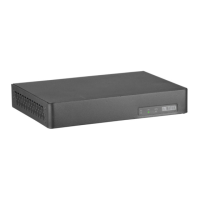Matrix PRASAR UCS System Manual 833
• The Operator sets Dynamic Lock for an extension by entering the extension number, setting the Dynamic
Lock Timer, and selecting the Toll Control Level.
• Now, whenever a call is made from extension A, the system checks for Toll Control Level.
• The system then checks the associated Lists of allowed and denied numbers.
• If the Toll Control Level is 0, then Toll control is time zone based, that is, working hours, break hours
and non-working hours. The outgoing call is allowed/denied as per the Call Privilege and the
corresponding Allowed and Denied Number List programmed for that time of the day by the System
Engineer.
• If the Toll Control Level is 1, 2, 3 the outgoing call is allowed/denied as per the Call Privilege and the
corresponding number list programmed for each level.
• If Dynamic Lock - Automatic has been set by user/Operator, the system waits for the duration of the
Dynamic Lock Timer set for the extension. At the end of each outgoing call made during the period of this
Timer, the system will restart the Timer again. The system will change the Toll Control back to the previous
Level when no outgoing call is made till the expiry of this Timer.
• If Dynamic Lock - Automatic has been set by user/Operator, and an internal call is made during the period
of the Dynamic Lock Timer, the system will check for the 'Decrement Dynamic Lock Timer for Internal
Calls' feature in the Class of Service of allowed to the extension. If this feature is enabled, the system will
start the decrement of the Dynamic Lock Timer. The system will change the Toll Control back to the
previous level on the expiry of this Timer. However, if the 'Decrement Dynamic Lock Timer' feature is
disabled in the Class of Service, the system will reset the Toll Control as described in the previous step.
• If Dynamic Lock - Manual has been set, the extension user/Operator must set the Toll Control Level back
to the previous Level.
Feature Interactions
• Redial and Auto Redial: The system will check for Toll Control Level when an extension on which
Dynamic Lock is set, attempts Redial. The system will not check the same for Auto Redial.
• Emergency Number Dialing: All extensions will be able to dial Emergency numbers always, regardless
of the Toll Control set on them.
PRASAR UCS provides for separate programming of Emergency Numbers, which remain unaffected by
Dynamic Lock set on the phones. Refer the topic “Emergency Dialing” to know more about this feature.
How to configure
For this feature to work, it must be enabled in the Class of Service of the extensions; Toll Control Level must be
programmed in the Station Basic Feature Template of the extensions. The user must change the default User
Password.
Dynamic Lock in Class of Service
In the default Station Basic Feature Template 01 assigned to all extensions of the PRASAR UCS, the default COS
group 01 has Dynamic Lock enabled. So, all extensions can set Dynamic Lock.
In the default COS group 01, 'Decrement Dynamic Lock Timer for Internal Calls' is disabled.

